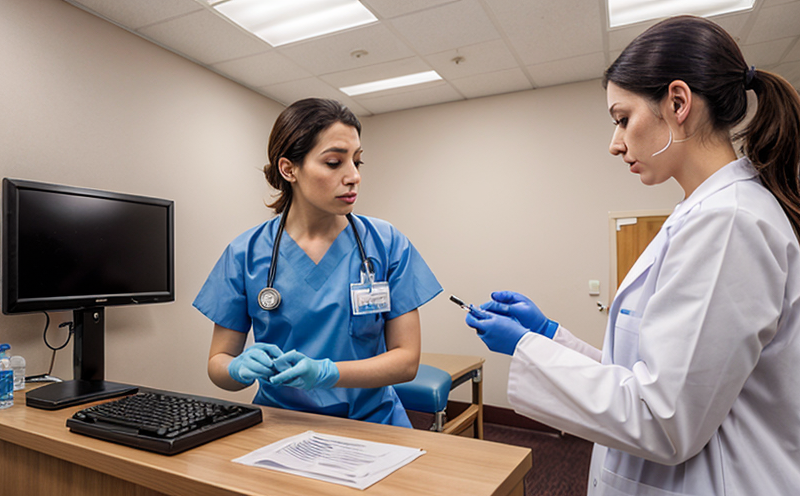Antibiotic Residue Testing in Poultry Meat
In the realm of clinical and healthcare testing, particularly within the subcategory of clinical toxicology and drug screening, antibiotic residue testing in poultry meat is a crucial service that ensures food safety and public health. The presence of antibiotics in poultry meat can pose significant risks to human health, especially for vulnerable populations such as children, the elderly, and individuals with compromised immune systems.
Antibiotic residues are primarily introduced into poultry through therapeutic treatment regimens aimed at preventing or treating bacterial infections. However, excessive use or improper administration of these drugs can lead to antibiotic resistance, which is one of the most pressing public health concerns globally. Regulatory bodies worldwide have stringent guidelines to mitigate such risks by mandating regular testing and monitoring.
Our laboratory offers comprehensive services for detecting even trace amounts of antibiotics in poultry meat, ensuring that products meet the highest safety standards set by international organizations like the World Health Organization (WHO) and Food and Agriculture Organization (FAO). Our expertise lies in providing accurate, reliable results using state-of-the-art analytical techniques.
| Antibiotic Name | Common Uses | Detection Limits (ppb) |
|---|---|---|
| Ampicillin | Broad-spectrum antibiotic used to treat various infections. | 0.1 ppb |
| Ciprofloxacin | Treatment of urinary tract and respiratory tract infections. | 0.2 ppb |
| Sulfamethoxazole | Used to treat various bacterial infections in animals. | 0.3 ppb |
Applied Standards
To ensure the accuracy and reliability of our testing services, we adhere strictly to international standards such as ISO/IEC 17025:2017 for quality management systems in testing laboratories. Our methods are also compliant with EU Directive 2002/657/EC on the approximation of the laws, regulations and administrative provisions concerning the placement on the market of veterinary medicinal products.
We employ validated analytical techniques like Liquid Chromatography-Mass Spectrometry (LC-MS) for precise quantification. These methods allow us to detect even minute concentrations of antibiotics, ensuring that our results are both accurate and reproducible across multiple samples.
Industry Applications
- Certification Compliance: Ensure compliance with EU regulations regarding maximum residue levels (MRLs) for antibiotics in poultry meat.
- R&D Support: Assist pharmaceutical and food companies in optimizing production processes to minimize antibiotic residues.
- Quality Assurance: Provide continuous monitoring of product quality, helping manufacturers maintain consistent standards.
The demand for safe poultry meat has grown significantly due to increased awareness about health risks associated with antibiotic consumption. By providing robust testing services, we contribute to maintaining public trust in food safety practices.
Competitive Advantage and Market Impact
Our commitment to excellence sets us apart from competitors by offering rapid turnaround times combined with detailed reporting tailored specifically for clients' needs. This capability allows our customers to make informed decisions promptly, ensuring they stay ahead in today’s competitive market environment.
The global poultry industry faces challenges related to antibiotic resistance; therefore, having reliable testing services becomes even more critical. By partnering with us, companies can ensure their products meet stringent regulatory requirements while also contributing positively towards reducing the spread of resistant bacteria.





